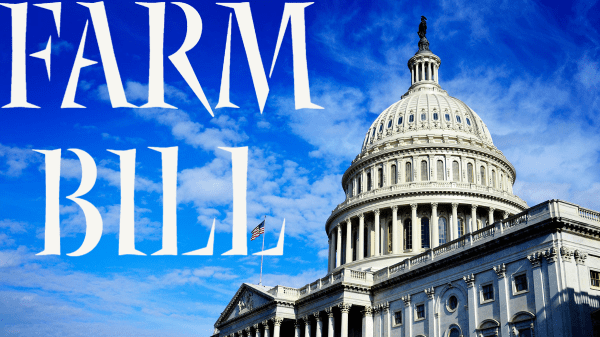
As the International Fresh Produce Association (IFPA) BB #:378962 launches a major campaign to preserve funding for the Special Supplemental Nutrition Program for Women, Infants, and Children (WIC) in the 2023 (whoops—2024) farm bill, it could be helpful to look back and see what is going on with it now.
In the first place, if nothing is done in the first six months of this year, nothing is likely to get done until 2025, with a new Congress. Farm bill could be pushed back to 2025 – Produce Blue Book
In a recent event at the Pennsylvania Farm Show, House agriculture committee chairman Glenn (GT) Thompson, R-PA, recently said that March is the soonest that he can expect to get a farm bill to the House floor.
The WIC program, as central as it is to the produce industry, which (according to IFPA) stands to lose $1.2 billion if it is not continued, is far from the biggest sticking point in a battle that is inevitably partisan.
One issue is California’s Prop 12, which imposed regulations requiring minimum specifications for the welfare of farm animals, including veal calves, breeding pigs, and egg-laying hens. The law applies to all products from these animals sold in the state, prompting complaints from meat producers in many sections of the country. Thompson has indicated that he will insert legislation preempting the California measure in the federal bill.
Another issue is money from the Inflation Reduction Act of 2022, nearly $20 billion, that was set aside for climate-smart ag practices. Thompson and others have stated their support for placing this funding in the new farm bill as a permanent baseline.
WIC and other food assistance programs have been heavily criticized by Republicans, although Thompson himself has taken a more conciliatory line.
It is possible that red-state constituents may not object to food assistance programs as their legislators may be. For example, a majority (61 percent) of those responding to the annual Nebraska Rural Poll support domestic food assistance programs, although the support is lower than for farm and conservation programs.
As the International Fresh Produce Association (IFPA) BB #:378962 launches a major campaign to preserve funding for the Special Supplemental Nutrition Program for Women, Infants, and Children (WIC) in the 2023 (whoops—2024) farm bill, it could be helpful to look back and see what is going on with it now.
In the first place, if nothing is done in the first six months of this year, nothing is likely to get done until 2025, with a new Congress. Farm bill could be pushed back to 2025 – Produce Blue Book
In a recent event at the Pennsylvania Farm Show, House agriculture committee chairman Glenn (GT) Thompson, R-PA, recently said that March is the soonest that he can expect to get a farm bill to the House floor.
The WIC program, as central as it is to the produce industry, which (according to IFPA) stands to lose $1.2 billion if it is not continued, is far from the biggest sticking point in a battle that is inevitably partisan.
One issue is California’s Prop 12, which imposed regulations requiring minimum specifications for the welfare of farm animals, including veal calves, breeding pigs, and egg-laying hens. The law applies to all products from these animals sold in the state, prompting complaints from meat producers in many sections of the country. Thompson has indicated that he will insert legislation preempting the California measure in the federal bill.
Another issue is money from the Inflation Reduction Act of 2022, nearly $20 billion, that was set aside for climate-smart ag practices. Thompson and others have stated their support for placing this funding in the new farm bill as a permanent baseline.
WIC and other food assistance programs have been heavily criticized by Republicans, although Thompson himself has taken a more conciliatory line.
It is possible that red-state constituents may not object to food assistance programs as their legislators may be. For example, a majority (61 percent) of those responding to the annual Nebraska Rural Poll support domestic food assistance programs, although the support is lower than for farm and conservation programs.
Richard Smoley, contributing editor for Blue Book Services, Inc., has more than 40 years of experience in magazine writing and editing, and is the former managing editor of California Farmer magazine. A graduate of Harvard and Oxford universities, he has published 12 books.




